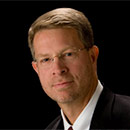Page 104 • (3,319 results in 0.027 seconds)
-

Method Approach, 4th ed (Orbis Books 2012) Climate Justice: Ethics, Energy, and Public Policy (Fortress 2010) The Power to Change: U.S. Energy Policy and Global Warming (PCUSA 2007) Biography James Martin-Schramm is Professor of Religion at Luther College in Decorah, Iowa, where his research and teaching focus on ethics, energy, and climate change; ethics and technology; and Christian ethics. Dr. Martin-Schramm holds the Ph.D. from Union Theological Seminary in New York and is an alumnus of Pacific
-
Sakai Learning Management SystemSakai is PLU’s learning management system for courses and projects. Instructors can request Sakai sites via the online course request page. Course sites are populated with students and faculty from Banner class enrollment data and are updated daily with any newly enrolled students.Get Started with Sakai Student Guide Instructor Guide Get SupportHave a question? Need help? Contact Sakai support and we’ll be in touch to assist you. Sakai Online Help Site: https
-
CreativeWorks at PLU CreativeWorks, a new applied theory and skills program within the Center for Media Studies, launched during the Fall 2014 semester. Projects undertaken by CreativeWorks students include media productions for both on and off-campus clients and audiences. In addition, the Center and CreativeWorks are also home to a student-run and semi-autonomous film and TV production program called “Showrunners.” Founded by PLU English majors Camille Adams ’16 and Rachel Diebel ‘16
-
Federal Grant Links Corporation for National Service AmeriCorps Council for International Education of Scholars (CIES) Fulbright Programs Defense Advanced Research Projects Agency (DARPA) Environmental Protection Agency (EPA) Environmental Education Grants Health Resources and Services Administration Health Resources and Services Administration Workforce Grants Institute for Museum and Library Services NASA National Endowment for the Arts (NEA) National Endowment for the Humanities (NEH) NEH
-
/epass/ and click on Change Your ePass Password. You may be asked to log in. Once you’ve logged into the Account Tools, click on the gold button entitled Change Password, found below your ePass data. Can I keep my ePass after Graduation?Your ePass will remain active for one year after graduation; however, you will need to remember to change your password before it expires every 180 days to continue to use the account. If you need assistance setting up email forwarding or you need to find out if you
-
, care for others, global perspectives, and thoughtful service to the common good. Your collective support for the PLU community forms a lasting impact. Thank you! Gratefully, Allan Belton President
-
ways. However, it is important for students active in clubs and organizations to understand the impact they have on the PLU community and beyond in regards to creating a diverse, just, and sustainable environment. Diversity & Inclusion Strategic Plan
-

, where she’s engaged in various hands-on projects to improve her videography, photography, and business skills. Assignments have included brainstorming and shooting videos for Travel Tacoma. She also picked up on-campus work experience as a PLU Marketing & Communications student photographer. Sy Bean, PLU’s University Photographer, “taught me so much about photography, and I wouldn’t be the photographer I am today without his guidance.” Stafki might continue working for the Meraki Agency after
-
projects to burnish their academic reputation. In Jensen’s case, he wanted to showcase his lab skills – something every med school likes to see. The course work itself is tough, and a lot of students find they are not cut out for it. It’s a hard reality: As difficult as the PLU program is, med school isn’t going to be any easier. “I don’t enjoy that part of the job, when students realize they might not be med-school material,” Smith said. “But they need to know what they are getting themselves into
-

will be in Kelley Café, after it reopens. All in place thanks to sustainability initiatives led by Hachet.The second-youngest of five siblings, Hachet grew up in Orient, Ohio (population: 252), where climate change isn’t always widely accepted as a fact. After taking AP Environmental Science, Hachet became fascinated by sustainability—and also joined the gardening club. He started “Operation Green,” a student group that collected recycling from classrooms for recycling and canceled school junk mail
Do you have any feedback for us? If so, feel free to use our Feedback Form.


